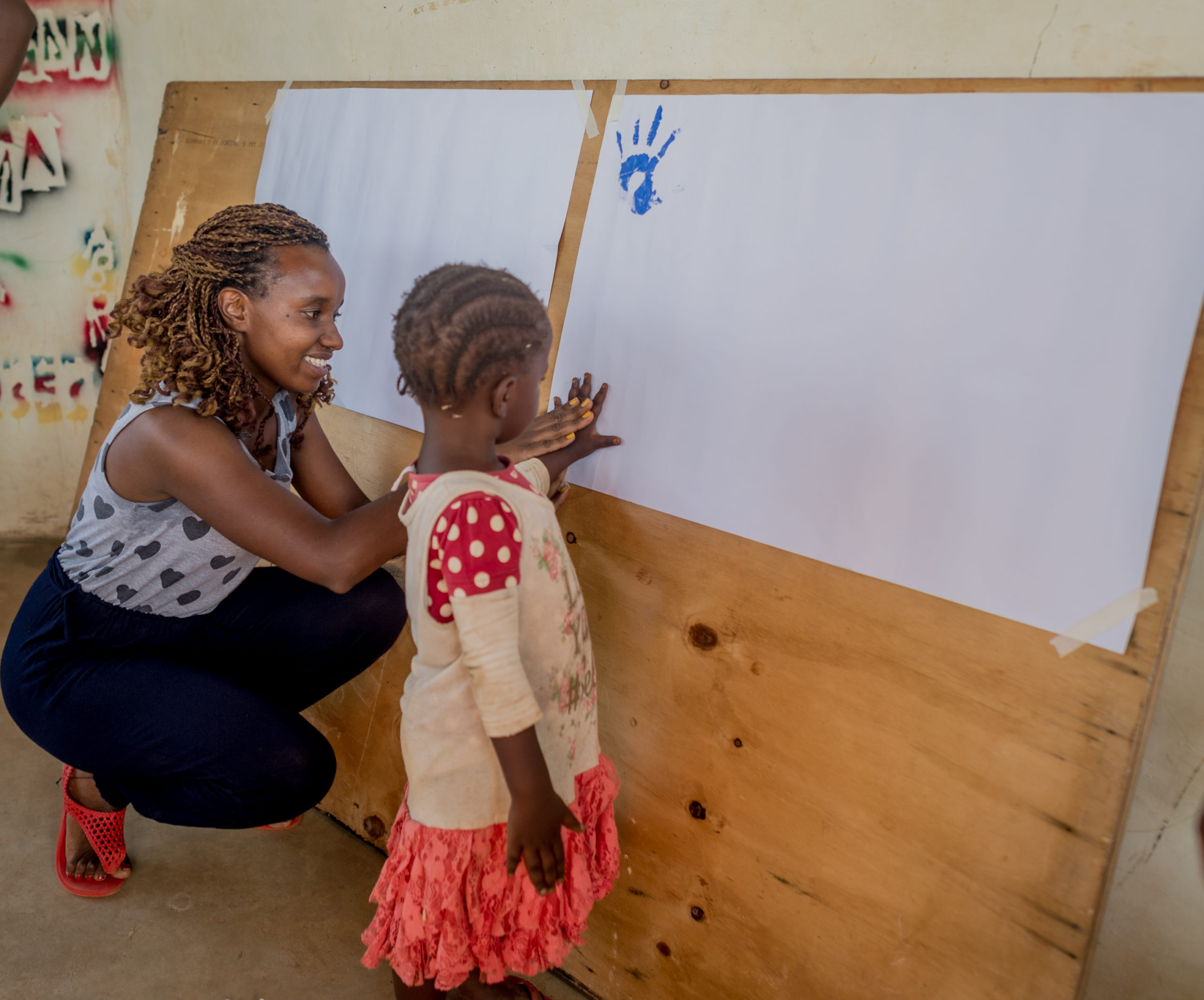July 15, 2020
When COVID-19 Struck Too Close to Home
When COVID-19 hit Kenya, I received two sets of bad news: the first being the extension of the cease of movement in and out of Nairobi. This means I am stuck away from home for who knows how long. The second piece of bad news was that my doctor needed to be isolated because he had come into contact with a patient who tested positive for COVID-19.
Before I go on, let me give you a brief history. My name is Karen Kavete and I am Well Aware’s Community Manager. I live with my four-year-old daughter Ruby in Imale, Makueni, Kenya, which is just outside of Nairobi.
In mid-March, I wasn’t feeling well so I came to Kitengela to be admitted to the hospital in Nairobi. On that night, the president announced the immediate lockdown of Nairobi – which meant upon discharge I could not go home. In the midst of this all, I had to find somewhere to stay. It’s now been three months so I’m sure you can understand my frustration and anxiousness around the unknown. So quickly, COVID-19 hit too close to home. Since then though, I took it upon myself to visit my doctor (the one who had been exposed) not only because I needed his guidance, but to satisfy my own curiosity on what Kenyan quarantine facilities were actually like. I had heard complaints, but I needed to know myself.
So I go back to visit my doctor, and at one point, I went to wash my hands, but there was no soap! Can you imagine walking into a government hospital and *boom* no soap?
Especially during a global pandemic. I am still digesting this and the shock it brings. You see, this situation is really common in our rural communities, but less so in the bigger cities. Irbaan for example, one of Well Aware’s partner communites, does not have enough soap for everyone in need – so only those at home are able to wash their hands. To break that down, it means the farmers, herders, and shoppers are only washing their hands twice a day, at most.

Besides the lack of soap, I have come across kids who have visited the hospital without wearing a mask. But, this situation was not unique to this particular hospital. Well Aware’s rural partner communities, such as Alamach in Isiolo County, have many kids who are not wearing masks. This could be due to lack of education/information about how to prevent the spread of the virus – or the high cost of buying a mask (which is KS. 50, or $0.50 USD). This may not seem like much, but many households cannot afford this necessity. They are already struggling with food, housing, and all the other bills that come along. For those who can afford a mask, many that are available are too large for kids – which could be another reason why so many children don’t have one.

But things are changing, and it’s because of the work we are doing with these communities.
With the launch of Well Aware’s virtual WASH program, these communities are learning DIY ways to make their own affordable masks that fit, how to create handwashing stations, and how to make soap with existing supplies. The program is ensuring education on how to stay safe during this crisis. And this shift is what will help these regions survive.
Even with what most of us now know, social distancing in Kenya is still a big challenge. When I call communities to discuss COVID-19, one of the major contradicting issues is the act of social distancing.
You find people continue walking in twos, in very close proximity. Large families often live in small homes, so even when people are in their house, they can be in danger. There’s too much trust that your family member or friend cannot be infected because you have been with them. The situation gets even tougher when you have small kids like my daughter who don’t understand why they should be indoors while some kids are out playing, or why they can’t play with the other kids. So I’ve learned to put up with squirms and tantrums to keep my family safe. It may not be easy, but I know it must be done.
What I can say from my experience in Kenya is that COVID-19 has come with many challenges and yet, some learning opportunities as well. We are all one big community and we must work together to stay safe. Through this all, one of my greatest pride is our emergency WASH program. It’s creating awareness in these communities that do not have information or have very limited information to be knowledgeable about the disease transmission and how best to prevent it. Speaking directly with rural communities has helped me see how advantaged I am to not only have water and soap to wash my hands but also sanitizer and adequate information on the coronavirus. I only wish there was a way we could continue providing new community water by implementing more projects and reaching more people in need during this pandemic. I know we will get back to it soon, and until then, I’m grateful we’re able to help how we can.
Thank you for listening to my story. I hope you and your family stay safe, and I look forward to updating you more soon.
